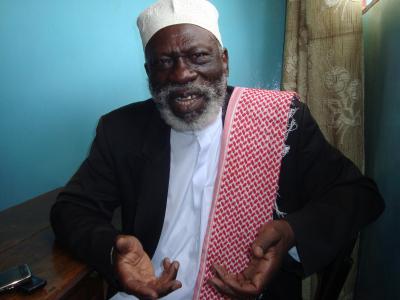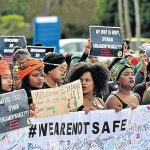Despite a long history in Kenya, Nubians struggle to be recognised as Kenyans and to enjoy the rights and support than come with citizenship.
By Rachuonyo Duncan

Nairobi, Kenya:
For over a century, Kenya has been home to members of the Nubian ethnic group. Originally from Nuba, a region located along the River Nile in northern Sudan and southern Egypt, many Nubians were brought to Kenya in the early 1890s to serve as soldiers in the British Army. At the time Kenya was under British colonial rule as the British East Africa Protectorate and, accordingly, many Nubians taken to Kenya carried British colonial passports and had birth certificates that stated their nationality as British.
In modern day Kenya, however, the Nubian community – claimed to be 100,000 strong by the Kenyan Nubian Council of Elders– finds itself denied many citizenship rights. The ethnic group has been labelled as a ‘detribalised community’ rather than a Kenyan tribe, and Nubians have become part of a growing number of stateless people. As a result, the community has been subjected to the persistent denial of access to employment, the right to vote, and the ability to work in the formal sector, leaving most Nubians trapped in poverty.
Arab others
Kenya’s Nubian population originally served as Askaris (colonial soldiers) in the British Army before being settled in Kenya. In 1912, the British government designated over 4,000 acres of land for the Nubians to settle, which they finally granted to the Askaris and their dependents in 1917. Kibera, the large urban slum on the outskirts of Kenya’s capital Nairobi, grew grown out of the Nubian settlement – originally called Kibra by the Nubians, meaning ‘land of forest’. Today, the majority of Nubians still live in the Kibera slums, with the rest scattered across other major towns.
But while they originally came from Nuba, the community has also earned considerable Kenyan credentials. As well as having lived in Kenya for over a century, Nubians, for instance, helped defend Kenya and East Africa during both World Wars by serving in the King’s African Rifles in countries such as Somalia, Abyssinia (now Ethiopia), Madagascar and Burma.
Nevertheless, the community’s problems today perhaps start with ongoing portrayal as outsiders. Unlike the majority of Kenyans, Nubians are Muslim and speak Ki-Nubi, an Arabic creole, as their first language. “After the Nubians soldiers joined the military”, Issa Abdul Faraj, chairman of the Kenyan Nubian Council of Elders (KENUCE), explained to Think Africa Press, “they had to understand the Arabic language, and in most cases would be instructed using the Arabic writings. This shows the legacy of the Arabic language among the Nubians, and that is why in the streets of Mombasa, most of the signs are written in Arabic.”
This legacy has lived on and maintaining their mother tongue is an important part of retaining the group’s cultural identity. Unfortunately, however, Faraj pointed out, “Speaking the classic Arabic language has [presented] a big challenge for the Nubians community since most Kenyans from other tribes assume that they do not belong here”.
Shattered dreams
The Kenyan government’s designation of the Nubian community as detribalised natives rather than a Kenyan tribe – a classification the colonial British made originally – has repeatedly been used to deny the Nubians’ claims to land, and they are now considered squatters in Kibera. Many other Kenyans have moved in to Kibera, transforming the area into one of Africa’s largest slums. And now the Nubians face eviction by the Kenyan government, which is seeking to ‘upgrade’ the slums and who refuse to recognise the Nubians’ rights to the area.
With tribal association used to establish citizenship in Kenya, many Nubians have also found it very difficult to obtain passports and national identification. Adam Hussein Adam, who trained in chemistry at the Jomo Kenyatta University of Agriculture and Technology, is one of the few Nubians to have been afforded fuller access to education. He was offered a scholarship in New Zealand in 1992 and in the United States in 2008, but was denied a passport. After producing 13 documents to prove his identity, Adam was eventually invited for questioning by a vetting panel at Kenya’s Ministry of Immigration, where he says he learnt that Nubians are not regarded as Kenyans.
“The Kenyan government shattered my dreams deliberately, I have lost many international jobs in the Middle East and good opportunities to study abroad,” he laments.
Similarly, Adam’s sister apparently had to wait 17 years for her an identity card, something essential for any Kenyan citizen. Adam says that government committees are deliberately discriminatory and ask for a whole range of documents from Nubians to establish their status – such as grandparents’ birth certificates – which other Kenyans were not required to provide. Many Nubians are unable to meet these demands as documents may have been lost over the years or never received in the first place.
Adam says that “many Nubian youths are suffering. Some of them are afraid of being arrested by the immigration department because they do not have their National Identification”.
Plight of the Nubian child
“Our children are suffering and as a result of that, cases of insecurity are on the rise”, Shafi Ali Hussein, the Chairman of the Nubian Rights Forum (NRF), tells Think Africa Press. “We want the Kenyan government to respond to our grievances.”
Hussein emphasised the need to demonstrate and organise to push the government to change its ways. He was part of a group which filed a case against the Kenyan government’s plans to upgrade the Kibera slums and delivered an ultimatum to the government over ID cards and the discriminatory vetting system. “The future of the girl and boy child is still uncertain”, he says, “We will not allow our children to suffer like us. We will seek attention from the highest authority.”
Hussein believes that cases of high school dropouts are high in Kibera because the majority of the Nubians cannot work and cannot afford to put their children through high school and college. He says that young children are engaged in drug peddling because problems with national identification documents mean they cannot find employment. “Our children have been denied a good educational foundation and we also lack direct representation in the government departments”, he explains.
Recently, a delegation from the African Committee of Experts on the Rights and Welfare of the Child led by the chairman Benyam Sawit Mezmur met with Nubian community leaders to discuss the plight of Nubian children and the Kenyan government’s lack of progress towards answering their grievances.
The problems facing the Nubian community in Kenya are complex and manifold. They will no doubt take time to alleviate and correct. But Hussein sees one simple first step as being self-apparent. “We have held talks with the government officials but nothing much is done”, he says. “Our problems will only end when we will be fully accepted as Kenyans”.

